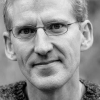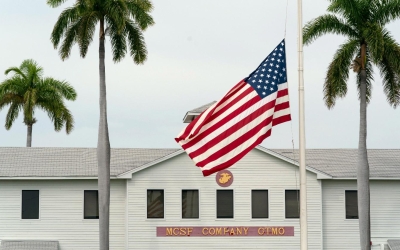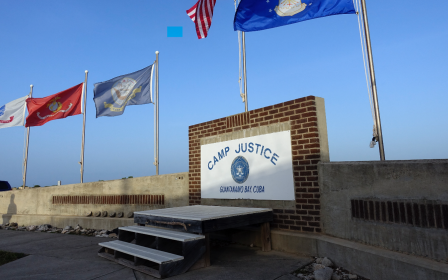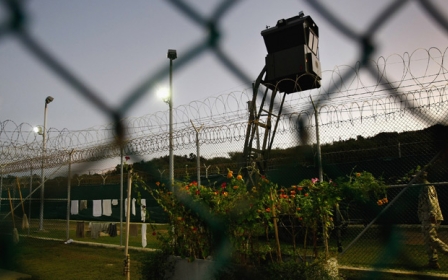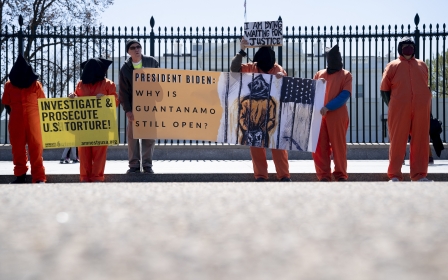Guantanamo: Freed after 20 years without charge. A beautiful moment, a new start
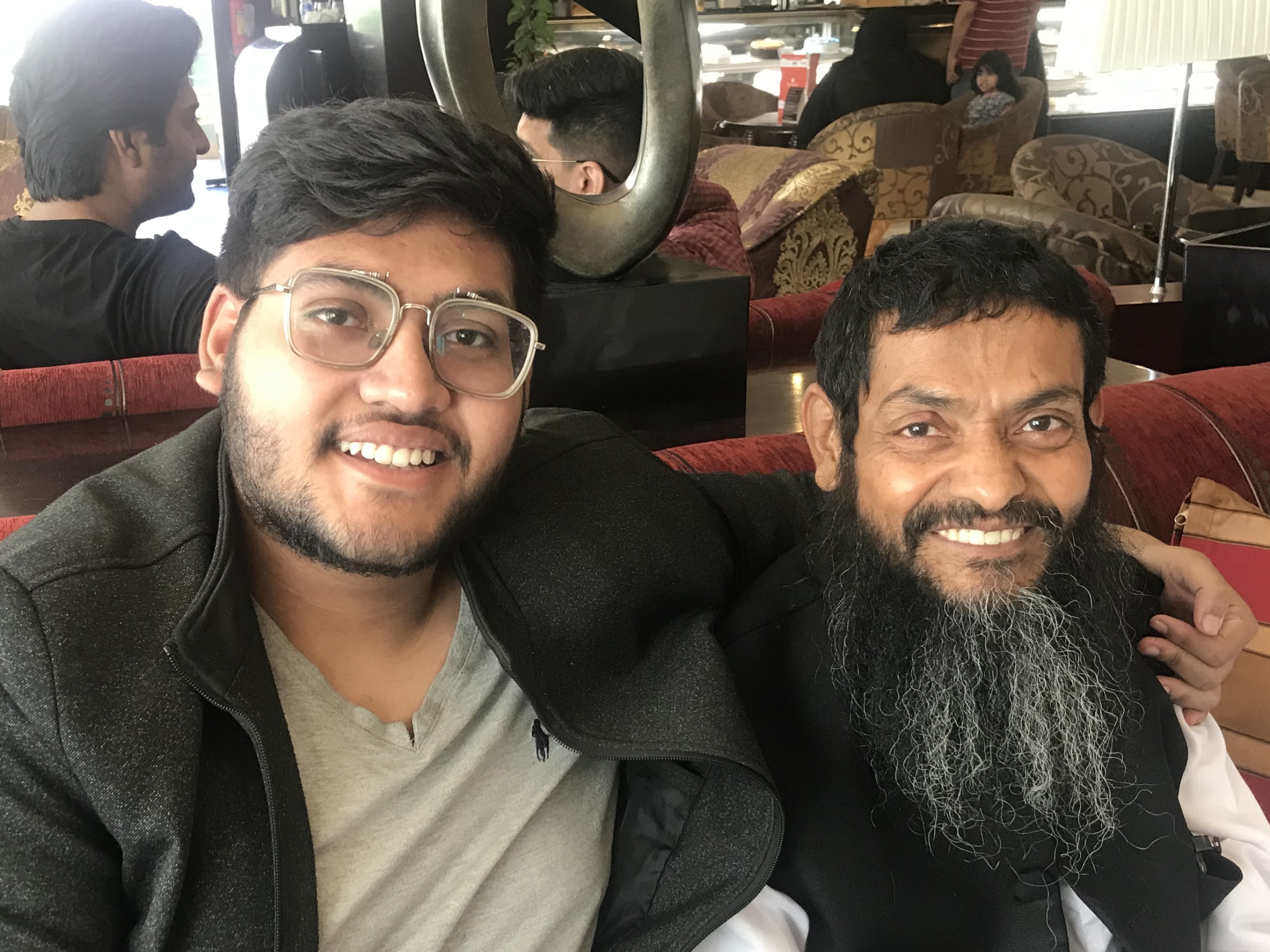
My last-minute trip to Karachi was painful, an 18-hour flight through four countries. But that was before I met with my client, Ahmed Rabbani, and learned how he and his brother, Abdul, had fared on their way back from Guantanamo Bay.
Half a lifetime ago they had both endured their rendition trip to Cuba. Last Friday, after 20 years of detention without charge, now cleared for release as "no threat to the US or their coalition partners", they flew back home.
It is an illustration of the gulf between Guantanamo and the real world that such flights remain shrouded in secrecy - as if someone might try to waylay the aircraft that was finally delivering liberty. The US government gave me only a few hours’ notice of their departure, so I could not get to Pakistan ahead of them, and was still in Britain.
But this meant I was able to follow their journey across the Atlantic on a plane tracker app. It was thrilling to see them flying to freedom, but I feared that, instead of delivering the apology that was long overdue, the US would take a stab at a final flight of abuse.
Sadly, this came to pass. Ahmed, 53, later described how little had changed in his treatment despite the passing years. Theirs was a 21-hour flight, only three hours longer, but infinitely worse than mine. There were 30 American soldiers on hand to handle two shackled prisoners.
Once more (still presumed innocent of any crime), Ahmed and Abdul, 55, were forced to wear ear-muffs and eye covers lest they might somehow divine their route back to Pakistan. If they wanted to use the toilet they still had to endure the humiliation of having soldiers watch.
One final torment behind them, they landed in Islamabad at noon on 24 February. In that instant, their world changed. The Pakistan Federal Investigation Agency official who greeted them showed respect.
And then came the moment that had eluded Ahmed for so long: there, in front of him, was his 20-year-old son Jawad. Ahmed’s wife had been pregnant when he was abducted on 10 September 2002. Father and son had never before met, never touched.
“Waa-llaah!” said Ahmed, the age-old exclamation.
“We’ve got a lot to catch up on,” said Jawad, hugging his dad for the first time.
A thousand battles
I have often met Jawad. I am keen to support his dream of becoming a human rights lawyer. He will never enjoy another human moment quite like that first meeting. I wish I could have been there for this encounter, but as it happened I was about to leave the UK.
One of a thousand battles we waged at the Cuban prison was over intellectual property: would Ahmed, a talented artist, be allowed to bring his paintings with him when he left his Cuban prison?
Thankfully, with the vigorous aid of the United Nations, we had recently prevailed, and Ahmed arrived with 130kg of his art, along with his legal papers and the only compensation he will likely ever get from the country that tortured him: two dozen plastic bottles of Ensure, the liquid nutrition that the US forced into Ahmed during the seven years of his hunger strike, his peaceful protest against mistreatment.
Forty-five hours later, I landed at Jinnah International Airport in Karachi. I was summoned before an immigration officer.
I was taken aback when he whispered for a bribe to speed up my entry. My path was splendidly rapid anyway - I was off the plane and out with my backpack in just 18 minutes. Not long after I arrived at the local Ramada hotel, my Guantanamo clients arrived.
What a moment! The last time we had shared coffee, I had brought a cup from the Guantanamo Starbucks - tepid before I reached the cell where our legal visits took place. Now we were seated in the Opera Cafe.
In came Saifullah Paracha, at 75 the oldest detainee in the prison, released at the end of October. It was the first time I had seen him back in Pakistan, and he immediately showed me the massive scars from his heart bypass surgery. He had refused medical care in Guantanamo, where the doctors had conspired with the interrogators.
Magical moment
Soon Ahmed and Abdul arrived, each with his son. I squeezed Ahmed’s scrawny body - still only 95lbs (43kg), little over half his original body weight - and we sat down to talk. For two decades the rest of the world had moved on while the brothers sat in Guantanamo stasis.
With his artistic eye for detail, Ahmed was astonished at how the froth on the coffee was patterned as a palm frond, a corporate innovation that took place after he was abducted.
Then Ahmed asked Jawad to bring over a tattered cardboard box they had carried into the hotel. I thought for a moment that it was the mandatory gift for me, the visitor. It was not.
He presented the 24 bottles of Ensure to Saifullah, who has been having trouble with digestion since his heart operation. I took a picture (for old-force-feeding-times’ sake, and to memorialise his only compensation from the US government).
Sometimes people ask me how I can go on for 40 years dealing with such emotional, life-and-death issues. My response is always the same: there are not many people who are fortunate enough to meet people in extremis, and help to hand their lives back to them.
This was another such magical moment. Both Ahmed and Abdul have a long climb up from the horrors of 20 years of detention without trial, but at least now they have started their journey.
The views expressed in this article belong to the author and do not necessarily reflect the editorial policy of Middle East Eye.
Middle East Eye propose une couverture et une analyse indépendantes et incomparables du Moyen-Orient, de l’Afrique du Nord et d’autres régions du monde. Pour en savoir plus sur la reprise de ce contenu et les frais qui s’appliquent, veuillez remplir ce formulaire [en anglais]. Pour en savoir plus sur MEE, cliquez ici [en anglais].


